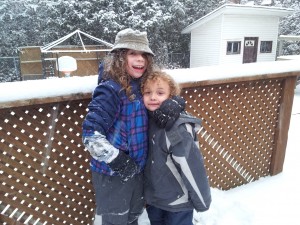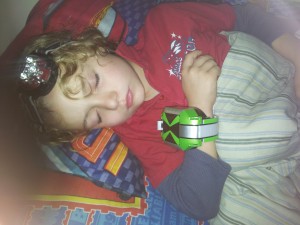When I was a child, my mother had a wooden spoon named Belinda. There was a happy face drawn on one side of Belinda, and a sad face on the other side. If my mother could tell that my behaviour was about to go downhill, she would produce Belinda like a magician, and show me the two faces.
“Do you want the happy face or the sad face?” she would ask.
The happy face meant a reward. The sad face meant a spanking. Belinda was an absolutely marvellous tool for teaching me about things like decision-making and consequences.
Sometimes I got the sad face, and therefore a spanking. The spankings didn’t happen often, and they were never severe – just a couple of open-handed swats on the bum – but they did serve their intended purpose of discipline. Usually I was not a repeat offender of the transgressions that I was spanked for.
I turned out OK, bear absolutely no ill will towards my parents for spanking me, and I did not grow up with the belief that the only way to solve a problem is by striking out physically. I freely admit to having my fair share of issues, but for the most part I am a well-balanced individual who can problem-solve in a balanced, rational and non-violent way.
In other words, my experiences of being spanked as a child did not turn me into a raging psychopath.
The world is a very different place today. If you admit to spanking your kids, people look at you as if you’re a child abuser who should be locked up for life. Many countries have legislated strict guidelines surrounding spanking. Some places have banned it altogether.
And I cannot help wondering if governments are going too far in telling parents how to do their jobs.
There is no question that there are people who cross the line from spanking to abuse. That was the case when I was a child, and it is still the case today. Guidelines and laws that either limit or ban spanking will not change that. If someone has that kind of disposition, or if they are in a state of anger that would drive them to extremes, they’re not going to stop and say, “Damn, this is against the law, I’d better stop.”
The point I’m making is that if someone is going to be abusive, they are going to be abusive.
Don’t get me wrong. I do think there should be guidelines. If a newborn baby is being spanked, that’s a problem. If a kid is black and blue from being “spanked”, that’s a problem. If the neighbours are hearing screams or if a child is afraid of his or her parents, that’s a problem. There needs to be some definition of exactly what it is that constitutes “spanking”.
At the same time, though, parents need to be allowed to parent. The vast majority of parents are quite capable of parenting their children without wrecking them, and there are abuse laws to deal with the ones who aren’t. If the laws aren’t good enough, the solution is to change the laws to ensure that the kids are safe from abusers. The solution is not to take power away from parents who are doing a perfectly good job.
I don’t spank my own kids, but that’s not because of a moral problem with it. It’s simply because spanking is not an effective means of discipline for them. If other parents choose to spank their kids in a responsible manner, I have absolutely no issues with that.
What are your views on spanking? Were you spanked as a child, and if so, did it have any lasting impact on you?
(Photo credit: richard_north. This picture has a creative commons attribution license.)



















